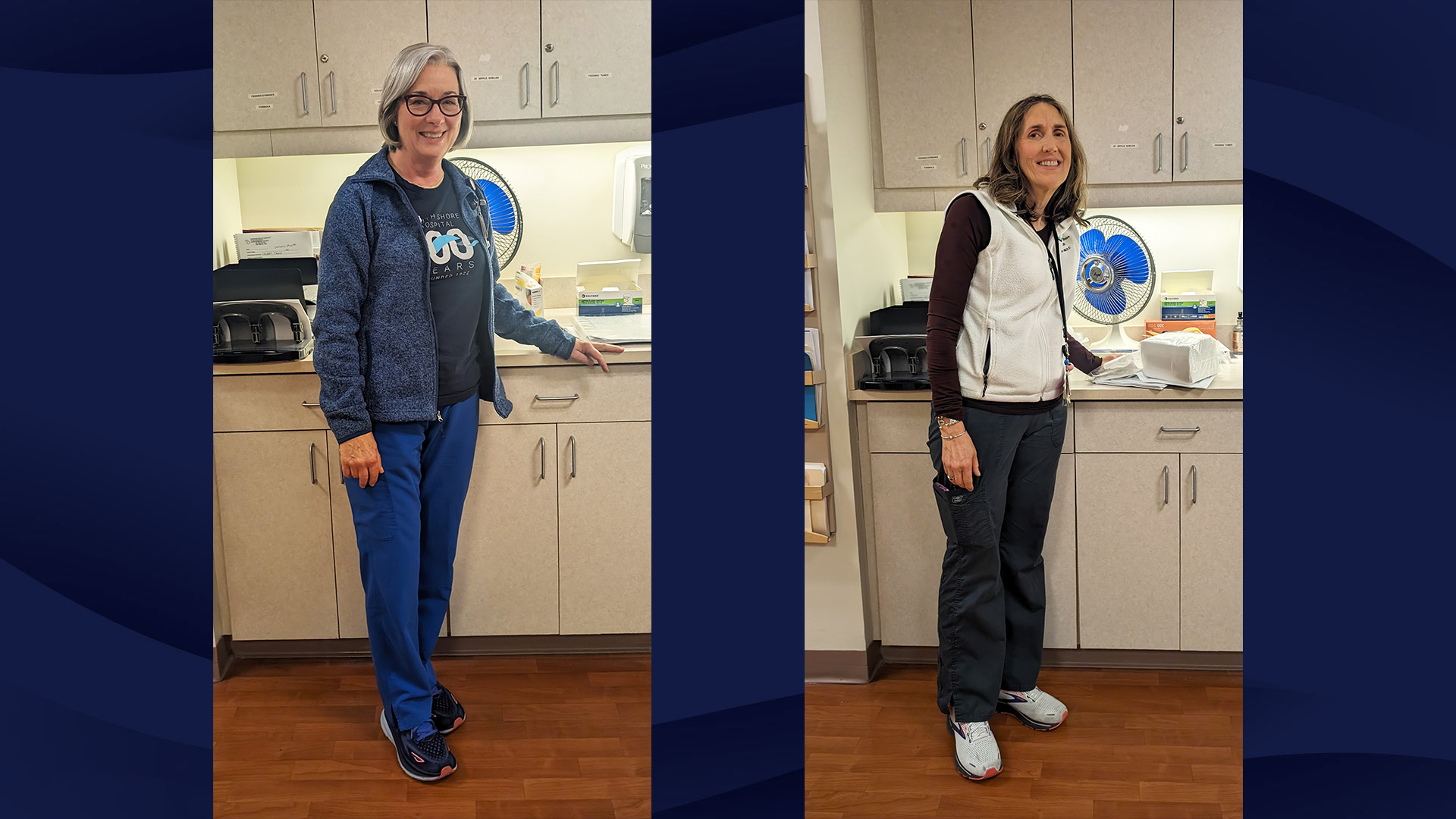Understanding the Role of a Hospital International Board-Certified Lactation Consultant (IBCLC)
The early days of motherhood feature many joys and challenges, especially for first-time moms.
During the whirlwind period of the first hours and days after birth, one aspect of motherhood perfectly encapsulates that dichotomy: breastfeeding.
Some breastfeeding moms find that their milk comes in right away and their baby latches without issue, turning breastfeeding into a nurturing, tender act right from the start.
In other cases, breastfeeding may not happen as easily due to a number of factors, which can lead to feelings of frustration or inadequacy.
For moms who experience challenges with breastfeeding, an international board-certified lactation consultant (IBCLC) can be a vital resource.
What is an international board-certified lactation consultant (IBCLC)?
An IBCLC is an accredited healthcare professional who specializes in lactation and breastfeeding.
To become an IBCLC, a caregiver must have a health sciences background, relevant clinical experience, and must complete a number of hours of lactation-specific education.
Once a caregiver meets those requirements, he or she must then take and pass a certification exam administered by the International Board of Lactation Consultant Examiners (IBLCE).
After receiving certification, IBCLCs must recertify every five years to ensure that they stay current with the latest guidelines and recommendations.
At South Shore Health, we’re proud to support breastfeeding moms with a wonderful team of IBCLCs – including Michelle and Hilary, who see patients at South Shore Hospital.
Easing stress during a challenging time
Michelle (38 years with South Shore Health) and Hilary (20 years with South Shore Health) are part of an experienced team dedicated to assisting moms with any issues related to breastfeeding.
Understandably, breastfeeding challenges can cause moms to feel a great deal of anxiety, which the IBCLC Team looks to ease.
“We’re there to support the mother and baby,” said Michelle. “We offer emotional support, breastfeeding support, and just encourage them.”
Individualized support is a key aspect of the IBCLC Team’s work as well – there is no “one-size-fits-all” solution when it comes to breastfeeding.
“We support moms and babies with whatever they decide, whatever journey they go down,” said Hilary. “Whatever your journey is, as long as you and your baby are happy. That’s the most important thing.”
Where in a hospital do lactation consultants see patients?
At South Shore Hospital, our IBCLCs spend the majority of their time on our Mother-Infant Unit, providing care and support for postpartum moms and their babies.
IBCLCs will visit each breastfeeding mom and baby (sometimes multiple times per day) to check on how things are going, offer advice, and answer questions on milk production, breastfeeding, and other related topics.
Michelle, Hilary, and their IBCLC colleagues also consult with clinical teams and patients in a number of other areas, including in our Neonatal Intensive Care Unit (NICU), Special Care Nursery, Pediatric Emergency Department, Emergency Department, Critical Care Unit, on our inpatient Pediatrics Unit, and on our inpatient floors.
“We really go everywhere and get consults everywhere,” said Michelle. “Anywhere there may be a mom that needs support with breastfeeding.”
IBCLCs also play a key role in patient education, from running classes and support groups to answering questions on our Warm Line.
In addition, IBCLCs collaborate with fellow caregivers across South Shore Health to meet the needs of each mom and baby.
“Everyone works as a team,” said Michelle. “Nurses, doctors, speech therapists, neonatologists…we all work together and collaborate to provide the best care for these moms and babies.”
Encouraging confidence and trust, especially in first-time moms
For some breastfeeding moms, the first attempts at feeding can cause a great deal of anxiety.
“Once they get through delivering the baby, that’s the next big fear, especially if it’s your first baby,” said Hilary. “At times, it seems more stressful than the actual delivery.”
In these cases, the IBCLC Team focuses on easing mom’s concern by encouraging her to trust herself.
With a little persistence and plenty of support from an IBCLC, most moms see those early frustrations give way to excitement.
“You can’t imagine how excited and how relieved these mothers are when their babies are breastfeeding,” Hilary said.
Individualized care through Lactation Support Groups
While our IBCLCs provide outstanding care for moms during their hospital stay, they also offer a vital post-discharge resource in through our Lactation Support Groups.
Facilitated by IBCLCs, the Lactation Support Group meets for one hour on Mondays, Wednesdays, and Fridays at South Shore Hospital.
The support group is free and open to all new moms – including those who gave birth at other hospitals.
Each support group session features up to 12 moms and babies, with ample space in the room to provide privacy for each mom and baby.
At the start and end of each session, the IBCLC Team weighs each baby with a scale that provides precise measurements down to the gram.
These measurements show how much milk a baby has consumed during the session – something that can be a big boost for mom.
“When we weigh them after feeding, we can say, ‘look, your baby took in two ounces,” said Hilary. “It starts giving them confidence.”
During the session, the IBCLCs offer an individualized approach, focusing on supporting each mom and baby with their specific need.
“We walk around and check on every mom and baby,” said Michelle. “We watch them breastfeed to see how things are going. If they’re having trouble latching, we help with that.”
There are no set attendance requirements for the group, with participation varying from mom to mom: some moms will attend weekly until their baby is a year old, while others attend once per month.
Whatever cadence mom chooses, attendees usually see impressive results.
“When you see the babies growing, it’s amazing,” said Michelle. “You see them at the beginning when they’re hormonal and crying, then you get these little, chunky babies after a while. It’s a huge success to see the progress and to see these moms and babies flourishing.”
Creating a positive, safe space for new moms
Along with breastfeeding support, many moms who attend the Lactation Support Group find something else just as meaningful: support and encouragement from fellow moms who understand exactly how they’re feeling.
“When you’re a brand-new mom, there aren’t a lot of places where you can go out and breastfeed comfortably,” said Hilary. “They’re learning that they can sit here and talk to other people and they can actually do this.”
“As their babies get even a little bit bigger, mothers are able to look around the room and see a baby that’s three or four months old,” added Michelle. “It’s helpful for them to know that they’re going to get there, too.”
For some moms, the shared experience offered by the Lactation Support Groups helps form meaningful social bonds, which can be particularly important during the early days of motherhood.
“A lot of these moms end up becoming friends,” said Michelle. “They’re doing the same thing and start talking to each other, setting up play dates and things like that. It’s really nice.”
South Shore Health resources for breastfeeding moms
If you need assistance with breastfeeding, our IBCLC Team is here for you.
“South Shore Health does a really good job offering all of our community programs, including prenatal classes, breastfeeding classes, and support groups,” said Michelle.
These classes and support groups are open to all new or soon-to-be moms, not just South Shore Health patients. Options include:
- Lactation Support Group
- Ready for Breastfeeding (Prenatal)
- Preparing for Labor & Parenthood (Virtual)
- Warm Line: Call 781-624-8602







